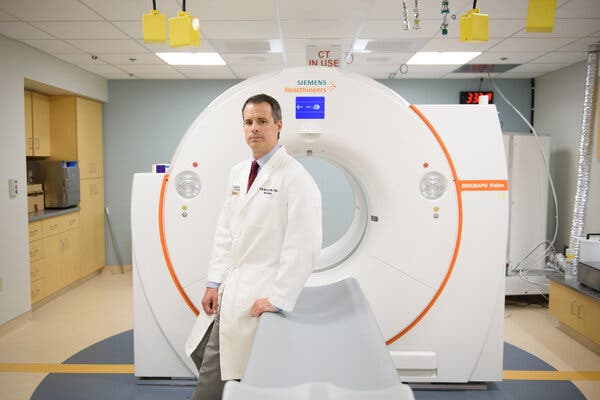Alzheimer’s Drug Slows Cognitive Decline in Key Study
Biogen and Eisai reported the finding from a large late-stage clinical trial of lecanemab, a drug they are developing.The pharmaceutical companies Biogen and Eisai said on Tuesday that a drug they are developing for Alzheimer’s disease had slowed the rate of cognitive decline in a large late-stage clinical trial.The strong results boost the drug’s chances of winning approval and offer renewed hope for a class of Alzheimer’s drugs that have repeatedly failed or generated mixed results.The positive data also offer Biogen a second chance after the company’s disastrous rollout of another Alzheimer’s drug, Aduhelm. That medication won regulatory approval last year despite little evidence that it could slow cognitive decline, received only sharply limited coverage by Medicare and has proved to be a commercial failure.The results appear stronger for the new medication, lecanemab. Cognitive decline in the group of volunteers who received lecanemab was reduced by 27 percent compared with the group who received a placebo in the clinical trial, which enrolled nearly 1,800 participants with mild cognitive impairment or mild Alzheimer’s disease, the companies said.The trial of lecanemab, which is administered via intravenous infusion, was the largest to date to test whether clearing the brain of plaques formed by the accumulation of a protein called amyloid could slow the progression of Alzheimer’s disease. Aduhelm is designed to work in a similar way.As with previous anti-amyloid drugs, some patients taking lecanemab experienced brain swelling or brain bleeding, but the prevalence of these side effects was lower than with Aduhelm and other experimental medications.Eisai had already applied for accelerated approval, the type of approval given to Aduhelm. The process allows the Food and Drug Administration to greenlight drugs if they have uncertain evidence of benefit but affect a disease’s biological pathway in a way that is considered reasonably likely to benefit patients. The company said on Tuesday night that it would first continue with the accelerated approval process, with an F.D.A. decision expected by early January, and then use the newer data to seek full approval. (Accelerated approval requires companies to do further trials and prove that their drug works.)Analysts predict that lecanemab, or any effective Alzheimer’s medication, would most likely be a multibillion-dollar blockbuster.“For Biogen, it puts them back in the Alzheimer’s game,” Brian Skorney, an analyst at the investment bank Baird, said.In a briefing for reporters Tuesday night, Ivan Cheung, the chairman and chief executive of Eisai, said the results represented “the first definitively positive large clinical trial to show that you can indeed slow down Alzheimer’s disease at this very early symptomatic stage.”He said that the drug started to show a benefit to patients about six months after they began taking it and that the benefit increased until the trial ended, 18 months after patients started on the drug.The companies plan to present more detailed results in November.Some experts said the drug’s ability to slow cognitive decline — by 0.45 on an 18-point scale — was modest at best and might not be a difference that patients in the mild early stages of the disease would notice.Dr. Lon Schneider, director of the California Alzheimer’s Disease Center at the University of Southern California, said the effect “is small and would not be considered by many as a minimally clinically important difference.” However, he added, “others would strongly disagree and say it’s clinically meaningful.”Dr. Schneider said the “relatively low” rates of brain swelling and bleeding “suggest that lecanemab is easier to use” than Aduhelm.He added that “although taking a press release at face value, which is often a chancy thing to do without having real data or reports, it seems that lecanemab would most likely receive regular marketing approval based on this one study alone.”In the briefing, Mr. Cheung said the company considered the results “very clinically meaningful,” but he added, “Of course, there are different opinions out there on defining what clinical meaningfulness is for this stage of disease.”Other companies are also developing treatments that could shake up the market for Alzheimer’s drugs, which before Aduhelm had not seen a novel treatment for two decades. Before the end of this year, Roche is expected to report data from two studies of a drug known as gantenerumab. The F.D.A. is expected to make a decision on whether to grant accelerated approval to an Alzheimer’s drug from Eli Lilly known as donanemab by early January, with results from a larger study of that drug due in the middle of next year.The results from the study on lecanemab “set a high bar that I think will be hard for the other drugs, if they are successful, to beat,” Mr. Skorney said.
Read more →


